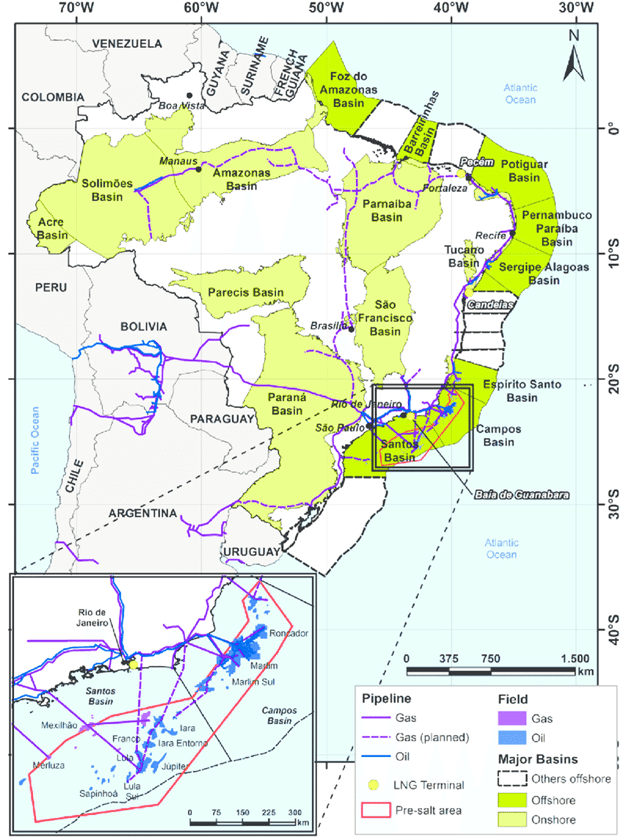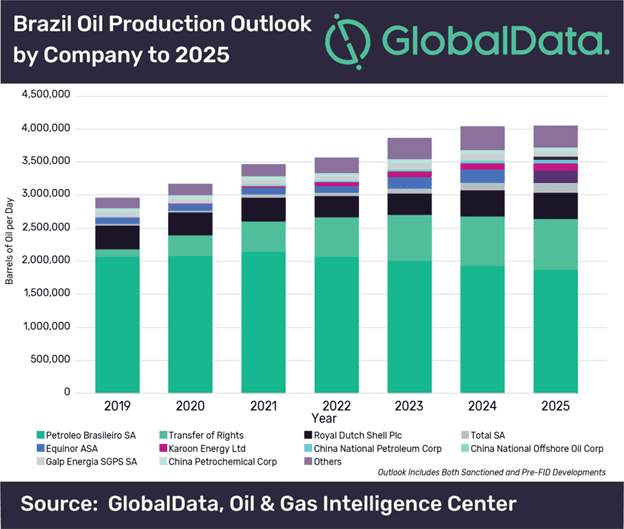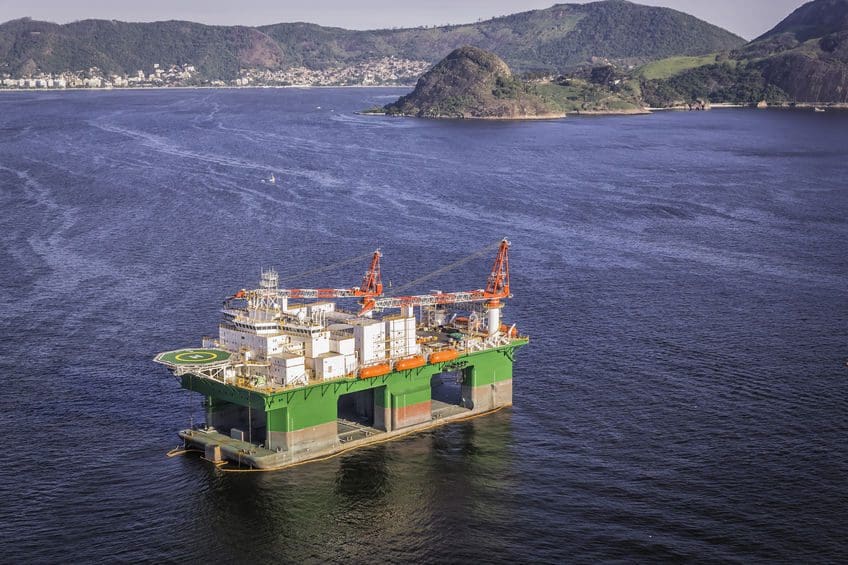Despite a raging coronavirus pandemic, Brazil managed to produce an average of 2.94 million barrels of oil per day (Mb/d) in 2020. This was 5.5 percent higher than their 2019 output of 2.785 Mb/d, and surpassed that of OPEC’s third largest oil producer, the United Arab Emirates at 2.77 Mb/d.
Brazil is now the seventh largest crude oil producer in the world, and the largest in Latin America. Surpassing both Venezuela and Mexico, the reasons for the increase in oil production in Brazil are numerous. New offshore oil deposits have been discovered, and multinational oil companies as well as the government-owned company Petrobras are actively setting up new refineries. International investment is encouraged while Petrobras continues to divest and sell some of its refining assets.
Petrobras and Multinationals Find New Reserves
Petrobras was established in 1953 by President Getúlio Vargas. After World War II ended, there was a significant rise in global demand for oil and several other Latin American countries had already started their own state oil companies. Petrobras was able to maintain a monopoly for the next 40 years, as the Brazilian constitution forbade foreign oil companies from investing in oil exploration and production.
This monopoly ended in 1997 when President Fernando Henrique Cardoso convinced Congress that since the country still needed to import oil, opening up to foreign investment would enable Brazil to become self-sufficient. Since that time, multinational companies have brought in large amounts of foreign capital and all the latest technology to find and extract new oil reserves.
In 2006 Petrobras announced the discovery of a giant oil deposit off the coast of Brazil, deep beneath a layer of salt in the Atlantic Ocean known as a “Pre-salt” field. It is estimated to hold 50 to 100 billion barrels of recoverable crude oil valued at over $2.5 trillion. These include the Pre-salt fields of Tupi, Búzios, and Sapinhoá in the Santos Basin and others in the Campos Basin, located south of Rio de Janeiro in the South Atlantic. (See map) Petrobras as well as multinational oil companies such as Shell, BP, Chevron and ExxonMobil are spending hundreds of millions of dollars to develop these reserves and extract the oil.

Despite a raging coronavirus pandemic, Brazil managed to produce an average of 2.94 million barrels of oil per day (Mb/d) in 2020. This was 5.5 percent higher than their 2019 output of 2.785 Mb/d, and surpassed that of OPEC’s third largest oil producer, the United Arab Emirates at 2.77 Mb/d.
Brazil is now the seventh largest crude oil producer in the world, and the largest in Latin America. Surpassing both Venezuela and Mexico, the reasons for the increase in oil production in Brazil are numerous. New offshore oil deposits have been discovered, and multinational oil companies as well as the government-owned company Petrobras are actively setting up new refineries. International investment is encouraged while Petrobras continues to divest and sell some of its refining assets.
Petrobras and Multinationals Find New Reserves
Petrobras was established in 1953 by President Getúlio Vargas. After World War II ended, there was a significant rise in global demand for oil and several other Latin American countries had already started their own state oil companies. Petrobras was able to maintain a monopoly for the next 40 years, as the Brazilian constitution forbade foreign oil companies from investing in oil exploration and production.
This monopoly ended in 1997 when President Fernando Henrique Cardoso convinced Congress that since the country still needed to import oil, opening up to foreign investment would enable Brazil to become self-sufficient. Since that time, multinational companies have brought in large amounts of foreign capital and all the latest technology to find and extract new oil reserves.
In 2006 Petrobras announced the discovery of a giant oil deposit off the coast of Brazil, deep beneath a layer of salt in the Atlantic Ocean known as a “Pre-salt” field. It is estimated to hold 50 to 100 billion barrels of recoverable crude oil valued at over $2.5 trillion. These include the Pre-salt fields of Tupi, Búzios, and Sapinhoá in the Santos Basin and others in the Campos Basin, located south of Rio de Janeiro in the South Atlantic. (See map) Petrobras as well as multinational oil companies such as Shell, BP, Chevron and ExxonMobil are spending hundreds of millions of dollars to develop these reserves and extract the oil.

Suzanne Driscoll is a freelance writer forSharemoneyfrom St. Petersburg, Florida. She has written for national publications on issues involving business, healthcare, education and immigration.






